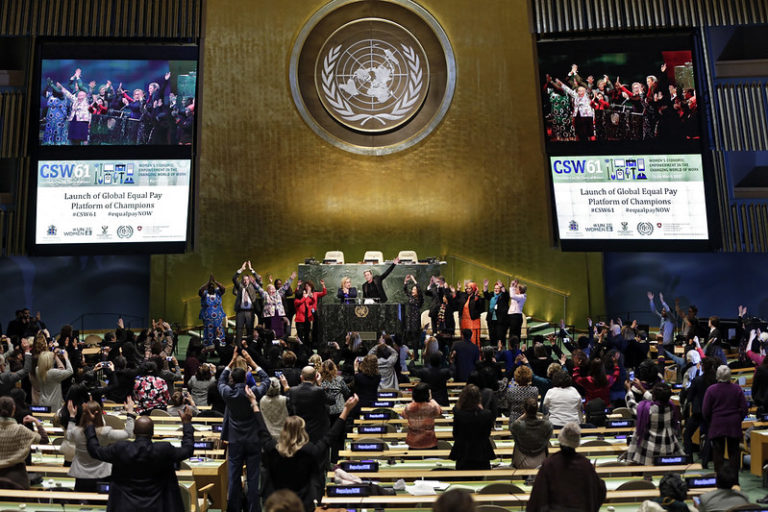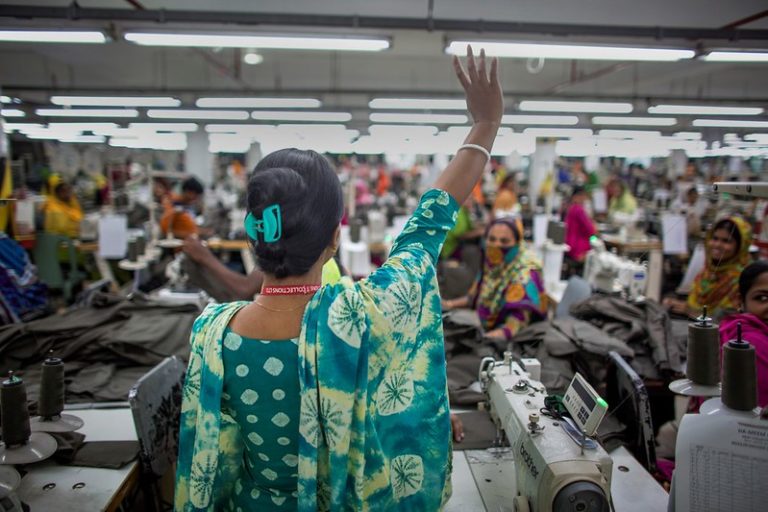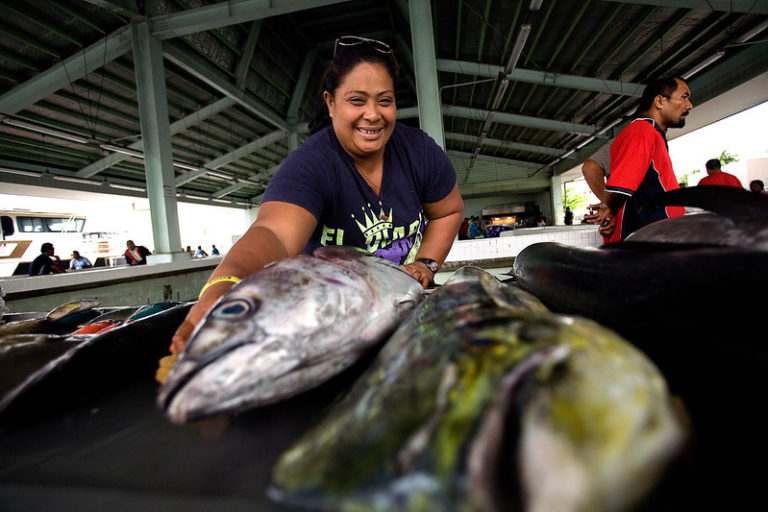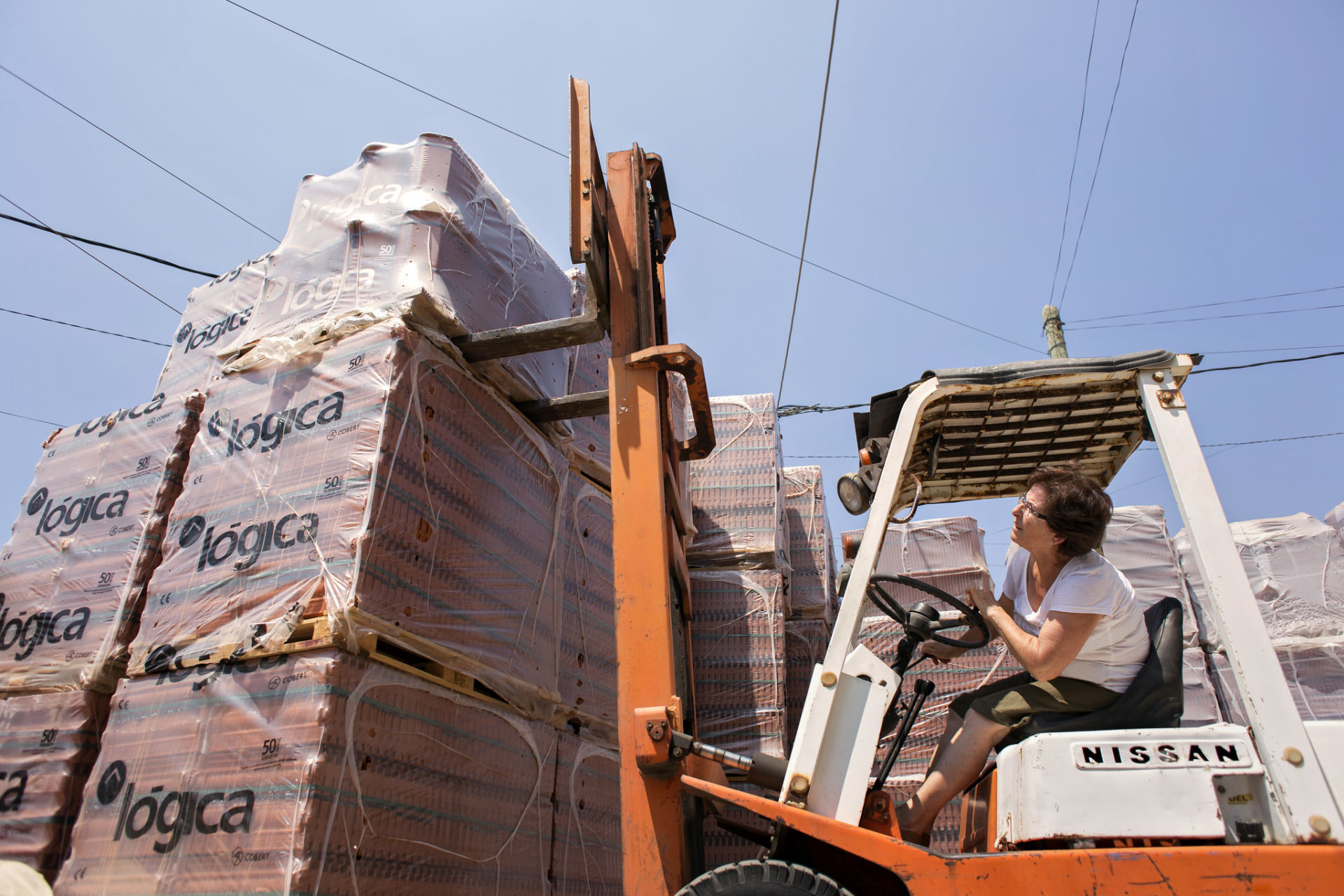The relationship between trade and gender is complex, but at its core is a simple fact: trade often impacts women differently than men. Trade policy is increasingly acknowledging this: new trade agreements now routinely include gender-related provisions.
These provisions are becoming more detailed and specific, sometimes taking the form of a dedicated article or chapter. The agreements between Canada and Chile, Argentina and Chile, and Canada and Israel are among the handful of “new generation” agreements that include a trade and gender chapter.
It’s a welcome signal. The world of trade policy is, at last, prepared to consider that not everyone automatically stands to benefit from trade. Gender provisions and gender chapters constitute a first step toward addressing inequalities. However, some observers suggest that references to gender in trade agreements are no more than nice rhetoric, and others say they do not address the full range of gender equality issues at stake.

A range of approaches to gender equality
Gender-related provisions differ in terms of language, scope, and location within an agreement. Some reaffirm parties’ existing commitments to gender equality, some specify the parties’ right to regulate in favour of women’s rights, some set out measures for the promotion of gender equality and women’s economic empowerment.
Related Articles: WTO Appoints First Female Director-General | Levelling the Playing Field for Women in Agriculture
The most common type of provision establishes mechanisms for the parties to cooperate in favour of gender equality. These include cooperation on building capacity on gender issues among trade officials, sharing best practices, conducting gender-based analysis, or measuring the impact of gender-responsive policies or of the actions that have been supported through the agreement’s cooperative activities.
Other trade agreement language may have positive effects on gender equality, even when it does not explicitly refer to it. Provisions in favour of micro, small, and medium-sized enterprises (MSMEs), for instance, tend to benefit women as they often play significant roles in these businesses.
Stipulations, whereby parties agree to avoid weakening the levels of labour or environmental protection with a view to encouraging trade and investment, may also benefit women because they often form the bulk of vulnerable workers in export-oriented sectors.
The world of trade policy is at last prepared to consider that not everyone automatically stands to benefit from trade.
Another approach can be found under Phase I of the African Continental Free Trade Area (AfCFTA), the text of which makes almost no mention of women or gender. Nonetheless, gender equality measures are being actively integrated into parties’ trade policies through their national strategies for AfCFTA implementation.
The inclusion of all these types of articles and the attention to gender equality that they signal is to be welcomed. They also leave open broader opportunities for cooperation in the future. As this process evolves and negotiators, civil society, and others consider how best to craft future trade agreements so that they contribute to achieving gender equality, we must determine the best way to measure their success.

Gender equality in international law
We must remember that gender equality is a fundamental human right. It is protected in international law and most authoritatively set out in the Convention on the Elimination of all Forms of Discrimination against Women (CEDAW), which all but six United Nations member states have signed or ratified.
CEDAW defines gender-based discrimination as any distinction, exclusion, or restriction on the basis of sex that has the effect or purpose of impairing or nullifying the recognition, enjoyment, or exercise of human rights and fundamental freedoms by women on an equal basis with men.
Discrimination can occur through a state’s failure to take the necessary legislative measures to ensure the realization of women’s rights, its failure to adopt national policies aimed at achieving equality between women and men, and its failure to enforce relevant laws. Discrimination can occur even in scenarios where it was not intended.
Encompassing all of women’s roles within the trade–gender relationship
There are two sides to the trade and gender relationship: (i) gender disparities can impact trade performance and (ii) trade and trade-related rules impact men and women differently, whatever their roles in society. In addition, experts generally agree that when considering the impact of a policy on women, one should consider women in all their different roles. A woman may be a worker, a producer, a trader, a carer, a consumer, or a rights-holder and will likely occupy two or more of these roles concurrently.
A forthcoming survey by IISD of gender-related provisions in trade agreements finds that they focus almost exclusively on women’s trade performance as producers, traders, or workers. They hardly engage with the (sometimes indirect) ways that trade and trade-related rules have gender-discriminatory impacts.
Finding a common measure for assessing gender-related provisions
The International Trade Centre has put forward one set of measures against which to gauge the gender responsiveness of trade agreements. This document explicitly states that its aim is to boost the participation of women in trade. In other words, it addresses but one part of one side of the trade and gender relationship: the part that focuses on the fact that women-led and women-owned businesses tend to find it harder to scale up and trade internationally.
A recent Organisation for Economic Co-operation and Development publication has suggested measuring gender responsiveness based on the seven drivers of transformation that the United Nations Secretary-General’s High-Level Panel on Women’s Economic Empowerment has put forward. These include tackling adverse norms; ensuring legal protections and reforming discriminatory laws; and strengthening women’s visibility, collective voice, and representation.
An approach based on women’s rights helps address the reality that gender inequalities are often intersectional.
We suggest that applying the multilaterally agreed and legally binding framework set out in CEDAW is the best way of measuring the success of gender provisions. CEDAW already has the backing of the vast majority of the international community, and its strength lies in how it addresses both sides of the trade–gender relationship and is applicable to women in all of their roles.

The framework has been amply developed and applied by an international body of gender experts, and its application has extended to trade-related issues. In addition, an approach based on women’s rights helps address the reality—frequently overlooked in trade circles—that gender inequalities are often intersectional. In other words, these inequalities are exacerbated by inequalities of race, economic status, or geographical location.
CEDAW also reminds us that when we consider how to design gender-responsive trade policies, we should start by assessing women’s realities. We should then ensure these policies address the main gender equality issues at stake for the countries engaged in that trade arrangement.
To situate the importance of establishing the correct starting point, we can refer to research on the impacts of labour provisions in trade agreements. This research shows that these labour provisions have lacked effectiveness, in part because they do not address the most pressing labour-related concerns for the countries involved.
By starting from women’s realities and applying a framework focused on women’s rights, we can limit the risk of gender-equality measures focusing only on women with jobs and business opportunities (leaving aside the women who have the least voice or political visibility, such as subsistence farmers in remote areas or informal sector workers).
Indeed, a fundamental aspect of ensuring that trade is inclusive and sustainable is making sure it creates equal opportunities for all women. Another is safeguarding women from being disproportionately affected by adverse effects of trade-related structural changes. One way of achieving this is ensuring that more women are at the table, among negotiators and among the stakeholders consulted in the elaboration or implementation of trade agreements.
As discussions on trade and gender gain momentum—which they seem set to do—we’ll need a broad range of gender expertise. This will entail looking beyond the trade field. Given how useful it will be to root trade-related gender provisions in one globally agreed framework, it is hoped that the trade community and the CEDAW community will collaborate in future work.
— —
About the author: Caroline Dommen is an independent consultant. She has worked in international trade, human rights, development, and environmental law and policy.
Editor’s Note: The opinions expressed here by Impakter.com columnists are their own, not those of Impakter.com.— In the Featured Photo: Woman drives forklift truck. Featured Photo Credit: UN Women / Joe Saade











